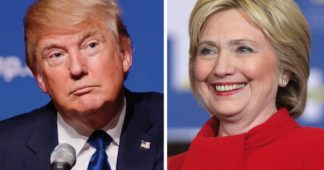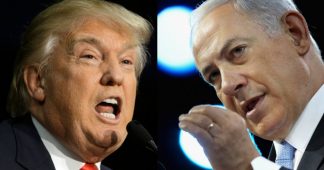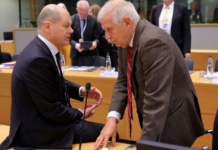* Τhis article was published by the Cyprus News Agency and it was translated into English by Wayne Hall
US President Donald J. Trump
February 6, 2017
The view that Donald Trump espouses game theory and aims to use the Greek crisis as a Trojan horse to strike a blow against Germany, breaking up the Eurozone, has been expressed by Lukas Daalder in an opinion piece hosted by Financieele Dagblad under the title “Trump plays chicken”.
As explained by Lukas Daalder, the American president has adopted as his navigational guide the well-known game where two drivers race towards each other to see who will chicken out first and turn the wheel to avoid a fatal head-on collision. Trump’s objective goal, according to the article writer is to clear the oncoming traffic lane from potential competitors or other obstacles that impede his drive for hegemony.
According to Lukas Daalder, Trump himself circulates in a heavily armoured vehicle, so that the choice is very simple for those driving in the opposite lane: either proceed to a head-on collision or swerve to escape the fatal crash. But the swerving will take the driver out of the game, to the side of the road, and the damage he will have sustained will be irreparable. Note that Trump set off on this course by choosing an easy target, i.e. Mexico, which on account of its objective weakness is doomed to end up at the side of the road, wrecked.
The point is made that the next victim will be Germany, which Trump has elevated to the status of number one opponent and for that reason seeks to neutralize. At first sight such a stance does not appear logical, Lukas Daalder observes, given that the automobile that conveys the German chancellor on her rounds is also an armour-plated Mercedes, so that in the event of a collision Trump himself will not escape unscathed.
At this point Lukas Daalder brings into the game the Eurozone, which he likens to a “beaten-up and clapped-out vehicle (a trailer, let’s say) being towed behind the Mercedes.
As Lukas Daalder puts it: “Trump wouldn’t be Trump if he hadn’t succeeded spotting the weak link, i.e. the Eurozone.
So why should the American president risk a collision with the Mercedes when he has the option of trapping the lead vehicle by sabotaging the trailer in that way forcing the vehicle in front (i.e. Germany) off the road, in that was accomplishing his strategic goal.
Trump doesn’t have to do much, Daalder makes clear. Today (6th February) the Executive Council of the IMF is convening to make its decisions on the provision of new economic assistance to Greece. Trump may admittedly not be the boss of the IMF, but he is the chief shareholder.
So what will the INF do, given that it has reservations about continuing the program, seeing Trump in his armoured vehicle descending on the hapless trailer? Reasonability may be sidelined. But in that case, the article writer asks, who honestly believes that the Eurozone will of its own accord make the necessary contribution to Greece, on the eve – indeed – of crucial elections in many European countries? Lukas Daader’s conclusion is that if this scenario materializes, the run-down trailer (i.e. the Eurozone) will start wobbling dangerously and heading for ruin.











